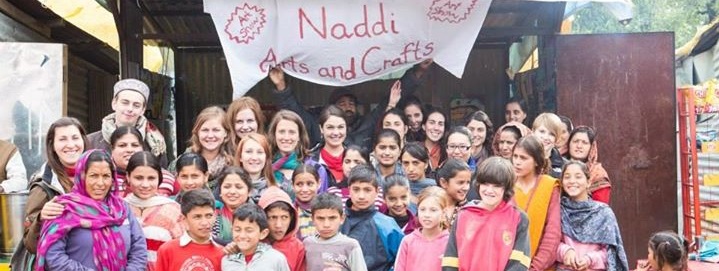Before coming to India, I was warned by my relatives about how careful I should be and was told about so many clichés here. I am not saying that they were wrong but after staying 6 months here, I have seen so many things to say that India is incredibly amazing.
Beside my stay in Himachal, I have also been able to travel for holidays and I have seen things that I would have never expected. Travelling here can either be exhausting or incredible; all depends on how you place yourself in the situation. I understand why people call it Incredible India. From north to south, west to east India, everything changes so much: language, people, food, habits, weather and nature. And I have not even seen 1/3 of this country.
Here, all your senses are awakened and you will feel yourself alive and awarded.
Your eyes will be amazed by so many things - The colors of clothes; the crazy cows, donkeys, horses, monkeys and goats that will chill in the street; the Sikhs, Hindus, Muslims, and Christians that will follow their religion next each other; the Himalayan mountains in the north; the incredible forts almost everywhere; the crazy Taj Mahal; the beautiful beaches in the south; the nature of Hampi; the spirituality of Rishikesh and Varanasi; the star gazing in the desert, in the mountains and at the beach.
But the paradox between rich and poor living close by each other is also part of this experience, as the lack of waste management system that is a real question and the craaaazy traffic of big cities.
All the smells will stop you. From the food smells to the street smells, that is what will make you stay in a place for more than few minutes or make you go away. Curry, masala, turmeric, ginger, but also less appetizing smells from the street and pollution. If you love spices like I do, you will have to make sure to try every single food. There are so much tasty food and different tastes from north to south. It’s maybe not always the healthiest food but what is good is not always healthy!
Travelling is crazy and so is the available transportation: car, bike, tuktuk, local bus, public bus, roof of a bus, train (with proper ticket and general ticket), camels, jeeps, truck, and an ambulance. I might repeat myself but once again, India is incredible. So many noises, from the horns, bus conductor, street sellers and music. But in all the mess, you always have a peaceful place, for me it’s Himachal.
I have been lucky to be placed in the beautiful state of Himachal. Among the mountains, sometimes very cold, sometimes super-hot, there are so many to see and so many people to meet. My stay in Rait went through ups and downs, as I have already mentioned in the other blogpost. I am very thankful to EduCARE to have given to me this incredible opportunity. I have been lucky to spend 6 months with people from this developing village. If you ask me about my daily activities, it would never be the same but here are some of them that I won’t forget. Waking up and taking your breakfast in front of the mountains; going to fun club and having fun with the cool kids in town; going to girls club and discussing relevant subjects to girls’ development; going to the migrant camp and having fun with the kids; teaching the woman how to use the stitching machine; visiting the woman in Rait that are willing to work with us on microfinance projects and planning it with them; finding out new projects and visiting different people that can help; organizing workshop in schools; working in the garden; going back home and preparing the food all together. I have learned many things here that make my stay a life changing experience. Among many things, my relatives will be surprised to see me cook Indian foods, stitch with the stitching machine, growing mushrooms, tend to a garden, etc.! I will miss all the people in Rait that were always smiling at me; that would fill my tummy with chai and sweets every day; that would converse with me through smiles, laughs and sign language as I believe that the language should never be a barrier.
 |
| View of Himachal Mountains |
Besides them, I will miss all the interns that I have been working with in Rait. I have seen fifteen different interns coming and leaving the house and my time has now come. I wanna give a big shout out to all the people that cross my way on this beautiful journey!
Anyway, here is how you should see life: Never stress your mind with little things when you can just make it easy by looking at it through another perspective.
Sylvia Rajaonah - France
Rait Centre Coordinator and Microfinance Project Manager












